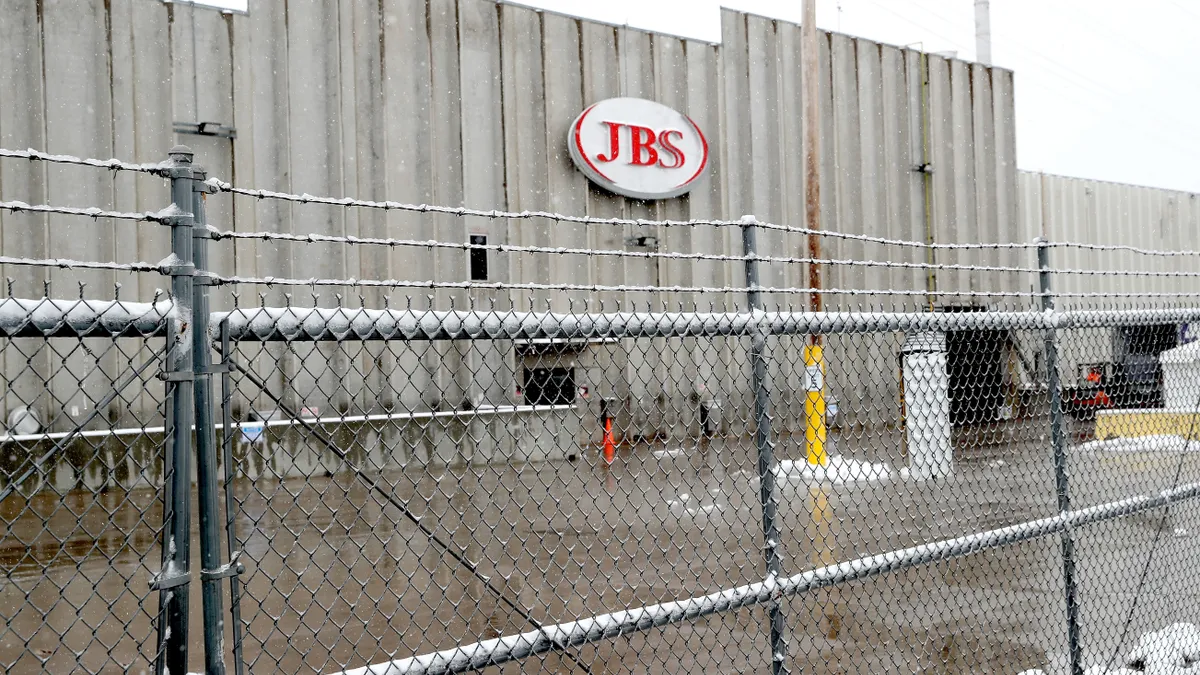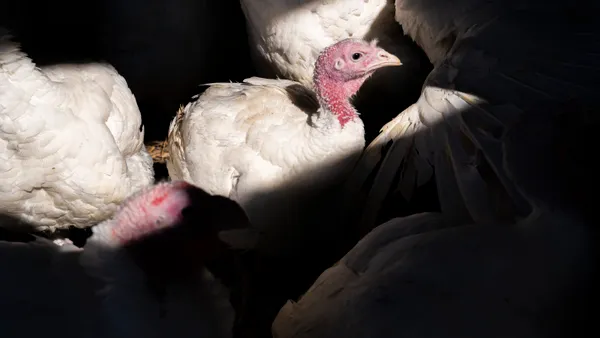Dive Brief:
-
JBS’ plan to list its shares on the U.S. stock exchange is being held back by an investor request to vote on the proposal, causing the meat packer to rework what had previously been submitted to federal regulators for scrutiny.
-
The request for a vote came from American depositary receipt holders, CEO Gilberto Tomazoni said in an earnings call Tuesday. “We decided to comply…and this decision forced us to redo the legal structure.” No timeline for the dual listing was mentioned in the call.
-
This delay comes as JBS navigates through a tough U.S. market backdrop that weighed on its third quarter. Net profit was $117.3 million, an 85% decline dragged down by low availability of cattle. Sales totaled $18.7 billion during the period, a less than 1% decline from last year.
Dive Insight:
Plans to list JBS shares in the U.S. have been in the works for several years, but delays including a major bribery scandal and the COVID-19 pandemic have interfered along the way.
The company’s latest attempt would allow shares to be traded on the New York Stock Exchange through a dual-listing under a new Dutch parent company, JBS NV, according to proposal details revealed in July.
While Brazil-based JBS is already traded publicly in São Paulo, the ability to sell shares in the U.S. would open up deep pockets of cash for the company to expand.
“We believe this is yet another way to generate even more value to all of our shareholders and our team members and our communities,” Tomazoni said in the earnings call.
JBS had expected to close the deal by the end of the year, but a request to vote on the proposal is holding it up. Tomazoni said the company is waiting to hear back from the SEC on the revisions before a vote can take place.
“We do not have a financial urgency in carrying out the listing,” he told investors.
In the third quarter, JBS saw overall earnings decline as it navigated through a tight cattle market that drove up prices. The company also took on higher grain and input costs, soft chicken prices driven by a global oversupply and soft consumer demand.
North American and Brazilian beef segments saw year-over-year earnings declines, as did its Pilgrim’s Pride chicken segment. Earnings were offset by positive results in the Australia beef and U.S. pork segments.
The Seara food processing segment also saw earnings decline, though JBS expects a rebound with the addition of a new state-of-the-art plant that opened in October.
“We are well prepared to navigate this challenging period with security and financial robustness,” Tomazoni said.











